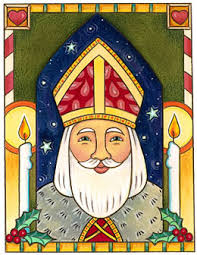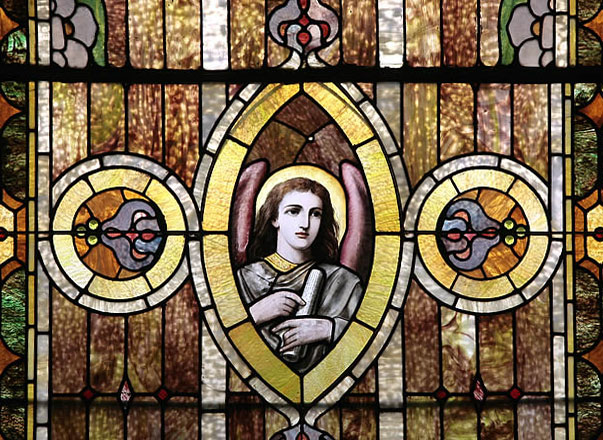St. Nicholas Day is a big deal in Germany, Austria, Switzerland, and other parts of Europe. On December 6th, St. Nicholas comes and leaves little gifts for all good children, usually in a shoe that has been put outside the door the previous night. Santa Claus, as we know him today in this country, is a mutation of the original St. Nicholas.
But did you know that St. Nicholas actually is a historical figure? He lived in the 4th century AD in what today is Turkey. It is said that he was a rich young man, whose parents had died of the plague. As he was reading the scripture about the rich young ruler (Matthew 19:16-22), he heard Jesus’ words loud and clear: in order to gain eternal life, the rich young man is challenged to sell all his possessions, give them to the poor, and follow Jesus. Whereas the young man in the Bible story just couldn’t do it, Nicholas did – but he was very shrewd about giving away his wealth. He supported those people and causes where he saw the greatest potential for betterment.
Eventually, Nicholas rose in the ranks of the still quite young and persecuted church – he spent some years in Bethlehem, traveled the near East, and finally became the bishop of the town of Myra on the Black Sea Coast. He was a learned scholar and played a major role in the defense of the ‘right faith’ at the council of Nicaea in the year 325. He was one of the authors of the ‘Nicene Creed’, which is still used in churches today.
Many legends surround this saint. The most famous may be the following: in Myra, there lived a poor man with three daughters of marriageable age. However, the man couldn’t afford the dowries and was about to sell his daughters into prostitution (don’t get too judgmental, this actually still happens in many poor areas of the world today). St. Nicholas offered his help, but the man was too proud to accept it. So Nicholas came to the house of that family in the middle of the night and threw some coins through the window – or the chimney, the traditions vary here, and these coins fell into some shoes lined up by the door – or into stocking hanging by the fireplace to dry. In any case, the three young girls were spared the fate as prostitutes. Based on this legend, St. Nicholas is still the patron saint of children in the Catholic and Orthodox traditions. And, of course, especially children benefit from St. Nicholas’ generosity up to this day…
Now isn’t it interesting that St. Nicholas was such a learned and important man – but we remember him mainly because of his generosity? Maybe there is a lesson for us in that: no matter, how important or learned or accomplished we think we are, in the end we will be remembered for how generous we are. Not only with our money, but with our attention, our time, and our smiles. It is so important to give all these things to those we love – and those we encounter in our lives. So what do you think you will be remembered for? And what do you want to be remembered for?
It is in giving of ourselves that we have the greatest impact on this world.




